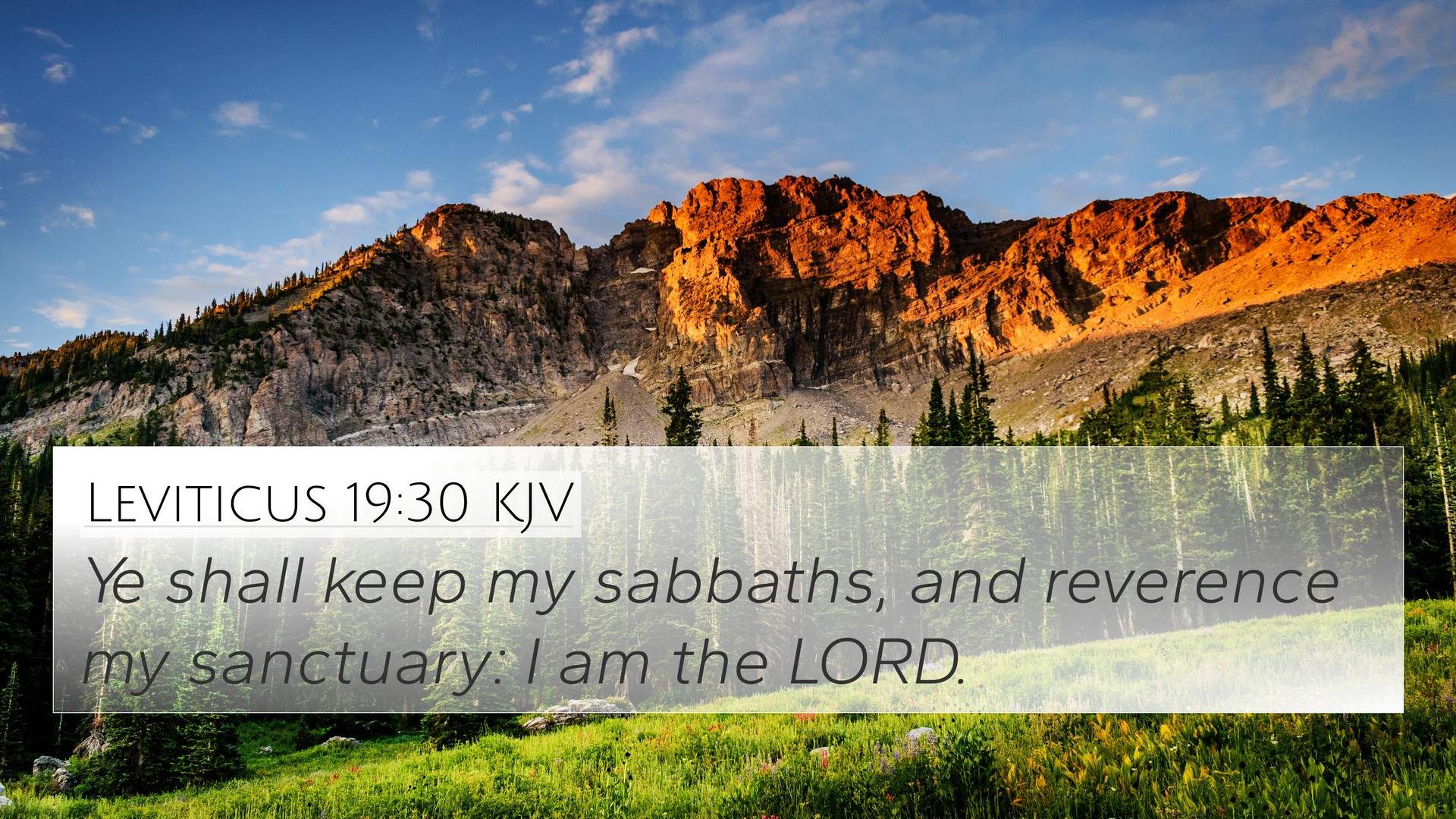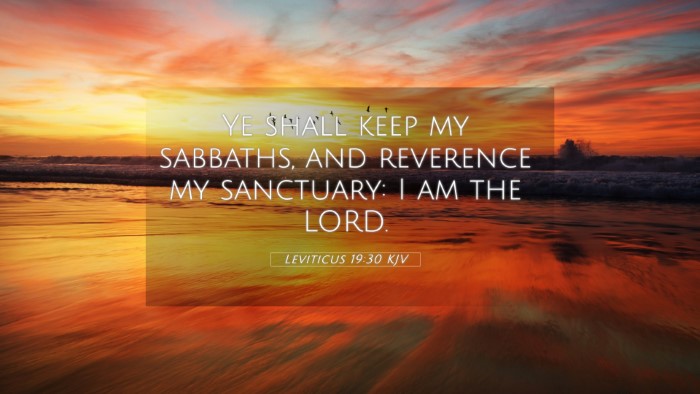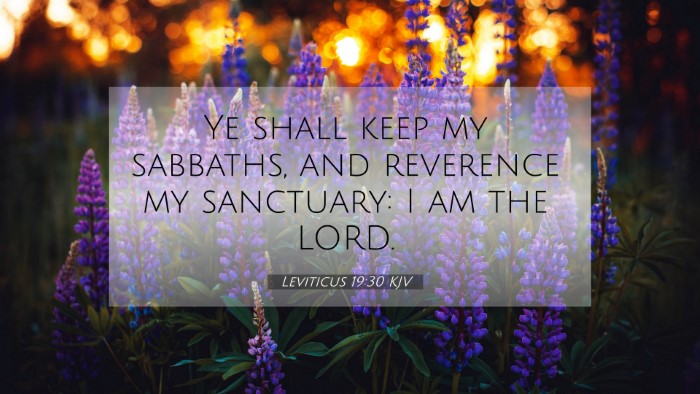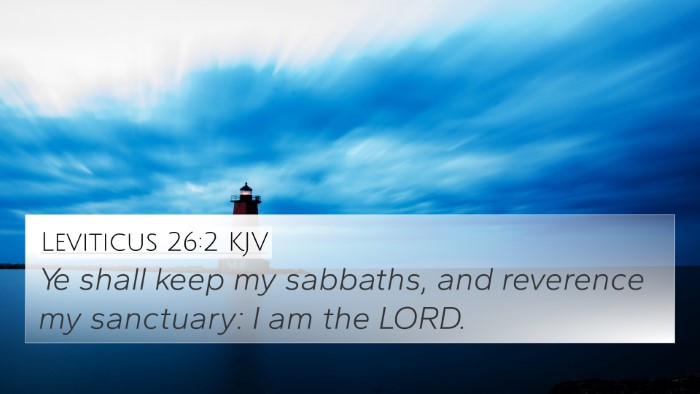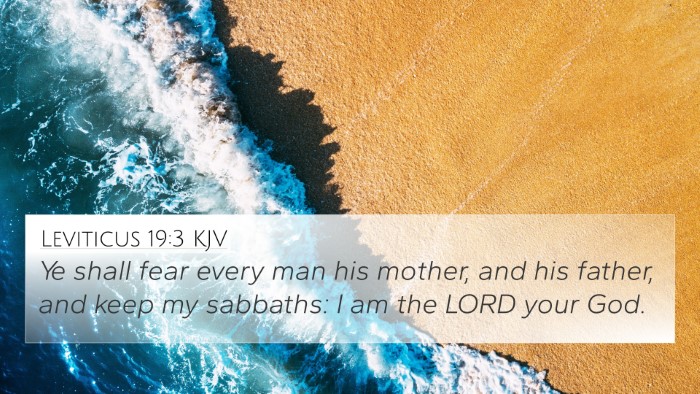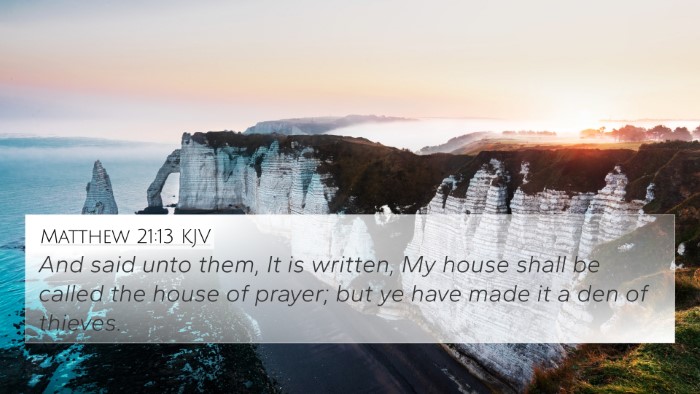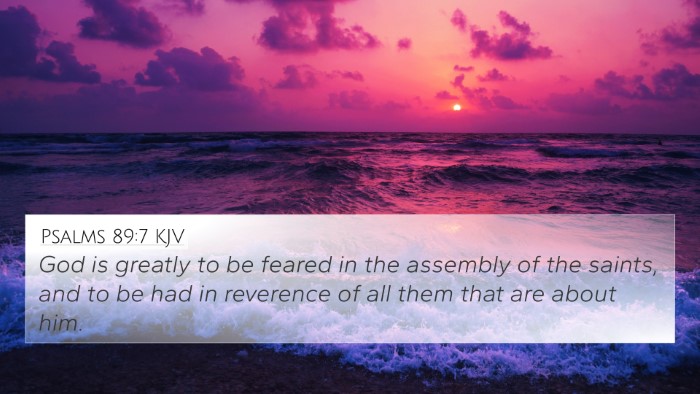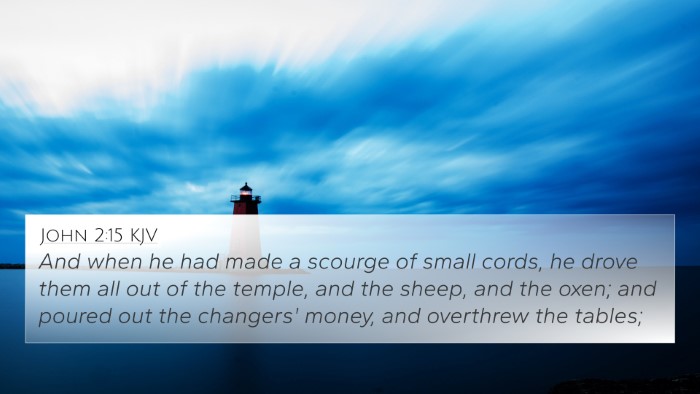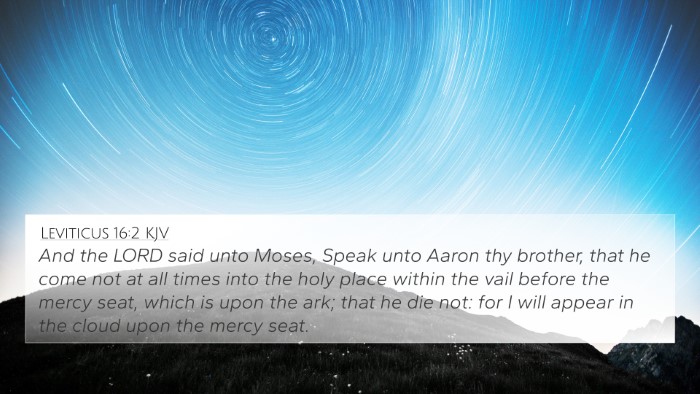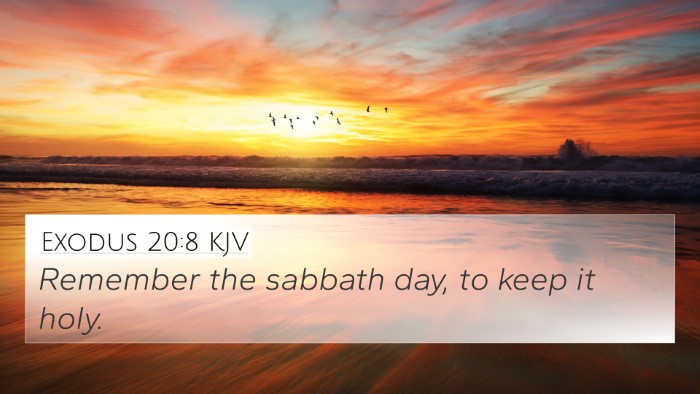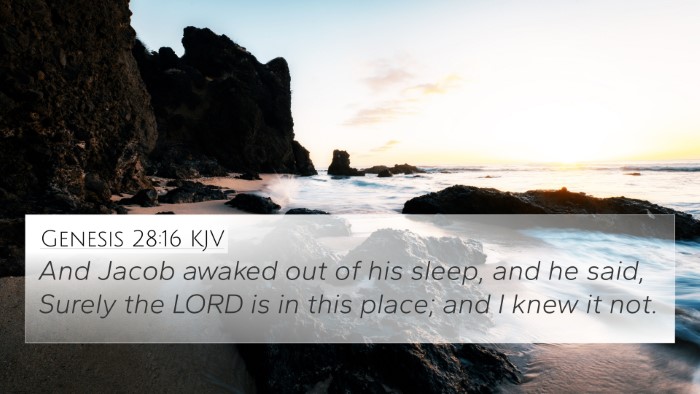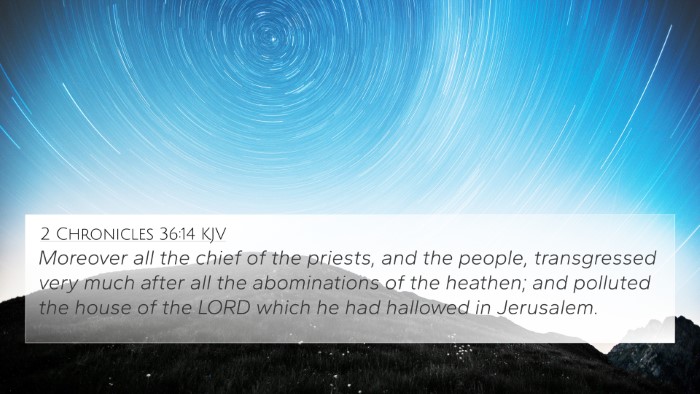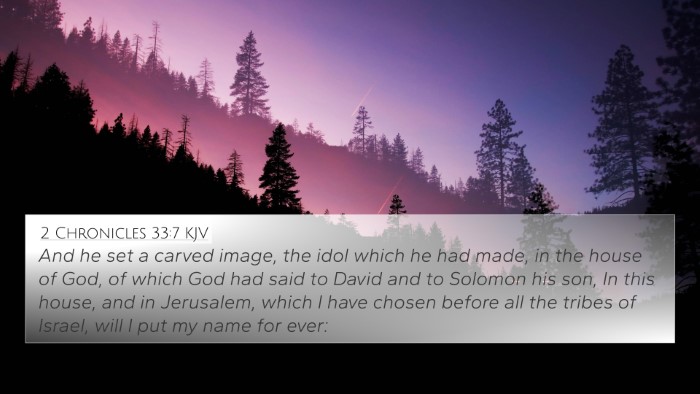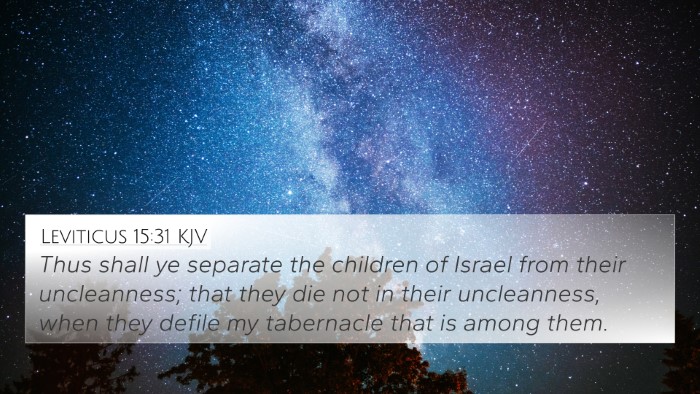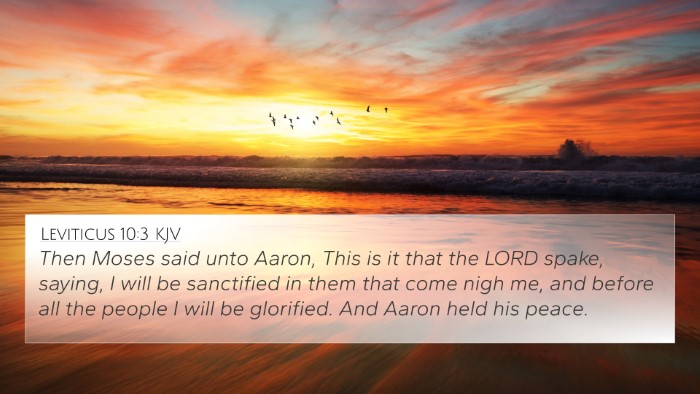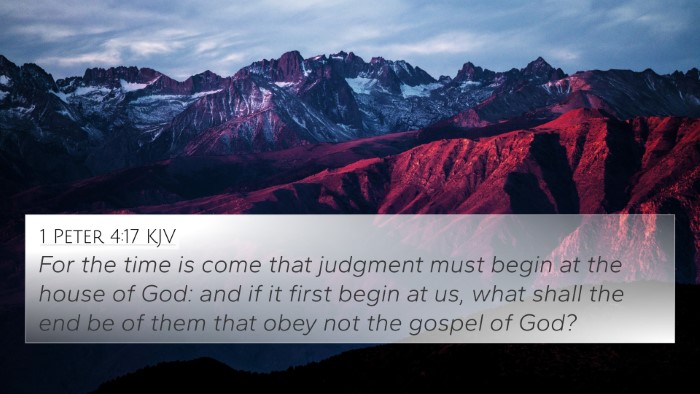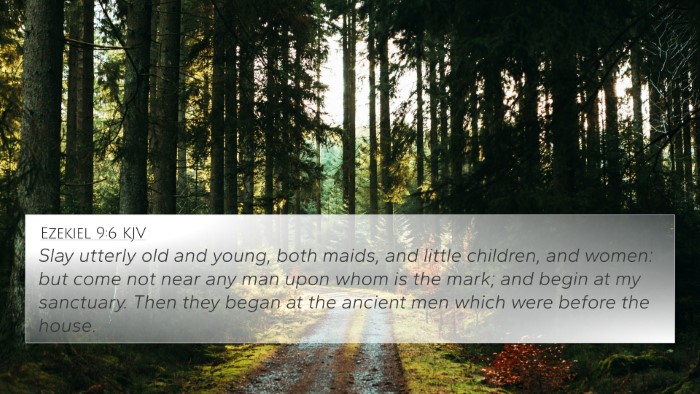Understanding Leviticus 19:30
Leviticus 19:30 states: "You shall keep my Sabbaths and reverence my sanctuary: I am the Lord." This verse encapsulates the essential principles of obedience to God's commandments and the importance of worship. Here, we find connections and insights that expand our understanding of this scripture through various public domain commentaries.
Spiritual Significance
Commentaries highlight several important themes within this verse:
- The Sabbath Observance: The command to "keep my Sabbaths" reflects the significance God places on rest and the sacredness of worship time. It indicates a rhythm of life centered around divine presence.
- Reverence for the Sanctuary: "Reverence my sanctuary" calls for a deep respect for holy spaces where God resides, representing our relationship with Him and our duty to uphold its sanctity.
- Divine Authority: The proclamation "I am the Lord" asserts God's authority and sovereignty, reinforcing the idea that adherence to His commands is not optional but an expression of our faith.
Cross-References and Thematic Links
To deepen the understanding of Leviticus 19:30, it is helpful to explore its themes through cross-referencing with other Bible verses. Here are some related scriptures:
- Exodus 20:8-11: This passage provides the foundational commandment regarding Sabbath observance, linking rest with creation.
- Isaiah 58:13-14: Emphasizes the joy of honoring the Sabbath and delights in upholding it, showing a thematic connection to worship and rest.
- Hebrews 4:9-10: Discusses the spiritual rest that remains for the people of God, connecting the Old Testament practice with New Testament theology.
- Psalms 84:1-2: Reflects a deep longing for God's presence in His sanctuary, affirming the importance of worship and reverence.
- Leviticus 26:2: Reiterates the need for observing Sabbaths as part of their covenant with God.
- Nehumiah 10:31: Directly addresses maintaining the Sabbath and shows the communal aspect of worship in ancient Israel.
- Matthew 12:8: Jesus’ declaration of being Lord of the Sabbath illustrates the transformational understanding of rest and worship inherent in His ministry.
Comparative Bible Verse Analysis
The verse Leviticus 19:30 fits into a broader narrative within the Pentateuch and the prophetic literature. For example, when comparing the essence of worship in Leviticus with its New Testament fulfillment in Christ, we see a transition in understanding God’s presence:
- Old vs. New Testament Worship: The focus on physical temples and rituals gives way to spiritual worship (John 4:24) where God desires worshippers to engage in sincere devotion.
- Prophetic Relationships: The prophecies regarding the new covenant (Jeremiah 31:31-34) indicate a time when God will write His laws on the hearts of His people, linking back to the commandments in Leviticus.
Tools for Bible Cross-Referencing
To aid in further study of Bible verse connections, various tools can be utilized:
- Bible Concordance: Useful for finding specific verses and themes easily.
- Bible Cross-Reference Guide: Helps explore connections between different passages systematically.
- Comprehensive Bible Cross-Reference Materials: Offers detailed studies for thematic links throughout the scriptures.
Conclusion
Leviticus 19:30 serves as a stern yet loving reminder of the importance of observing God's commandments concerning the Sabbath and maintaining reverence for His sanctuary. Through cross-referencing and comparative study with other scriptural passages, one can appreciate the depth and richness of God's desires for His people, both in the context of Old Testament law and New Testament grace.
This exploration encourages a deeper understanding of scripture, prompting believers to engage in cross-referencing Bible studies to unlock further nuances in their faith and the teachings of the Bible.
